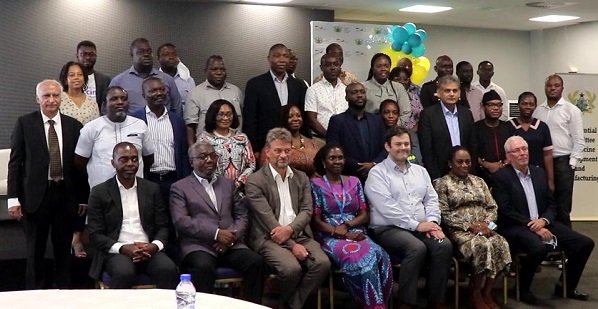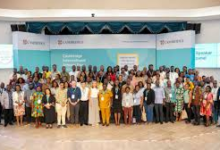
The construction of Ghana’s first vaccine manufacturing plant is expected to begin in July this year, the Chairman of the Presidential Vaccine Manufacturing Committee (PVMC), Professor Kwabena Frimpong-Boateng, has said.
Under a private led consortium; DEKS Vaccines Limited, the plant would be a “fill and finish” site that imports components of COVID-19 mRNA vaccines for processing, packaging and distribution nationwide and within the sub-region.
With funding support of 5million Euros from the German Development Cooperation and seed money of 25 million dollars from government, the plant is expected to be fully operational by January 2024 to produce the country’s first COVID-19 vaccines.
Speaking at an event to commemorate this year’s World Health Day (WHD), Prof.Frimpong-Boatengindicated that the establishment of the plant was part of a 10-year roadmap to make Ghana self-sufficient in vaccine production to meet national and regional needs.
He said in the medium to long term, the government intends upgrading the Food and Drugs Authority to a Maturity Four Level Regulator, establish the National Vaccine Institute, develop bilateral and multilateral partnership in key areas and strengthen research in development of vaccines for other diseases like malaria and tuberculosis.
“The entire project would be private sector-led. If there is anything the COVID-19 pandemic has taught us it is the fact that we must look within ourselves and leverage on expertise within to achieve equal health for present and future generations,” he said.
Disease Prevention and Control Officer at the World Health Organisation, Dr Sally-Ann Ohene, said the theme for this year’s WHD; “Our Planet, Our Health” reinforces the need to pay attention to linkages between the environment and human health.
“There is a lot we can learn from the interventions and innovations that have evolved from managing the COVID-19 pandemic even as we promote government investment in addressing environmental problems that impact human health; air pollution, contamination of water sources and ecosystem drainages,” she cautioned.
Dr Ohene noted that “with the projected population increase and unbridled urbanisation into areas exposed to natural hazards and a concomitant increase in associated injuries, disease and deaths, we have an obligation under the Sustainable Development Goals (SDGs) and universal health coverage (UHC) to ensure that people are better protected from health crisis posed by climate crisis.”
For his part, Cluster Coordinator for the GIZ Ghana Network for Inclusive Economic Development, Gerald Guskowskli, expressed the German government support to efforts by Ghana to be self-sufficient in vaccine production under UHC targets.
“We are glad to be supporting Ghana’s 10-year vaccine development roadmap intended to transform the country into a pan-African Vaccine Manufacturing Hun.
Partnering with other development sector partners such as the European Union as well as private sector partners is a great headway so that Ghana can start vaccine production in 2024,” he said.
BY ABIGAIL ANNOH





